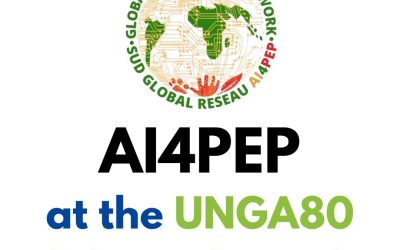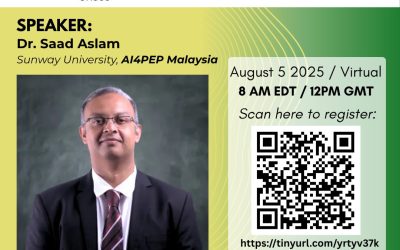On September 12, 2024, AI4PEP hosted a vital panel at the UNGA Science Summit, exploring AI’s transformative role in healthcare within the Global South, focusing on practical applications and ethical governance. The discussions highlighted successful AI implementations, challenges like equitable access, and the importance of community involvement for scaling solutions responsibly.
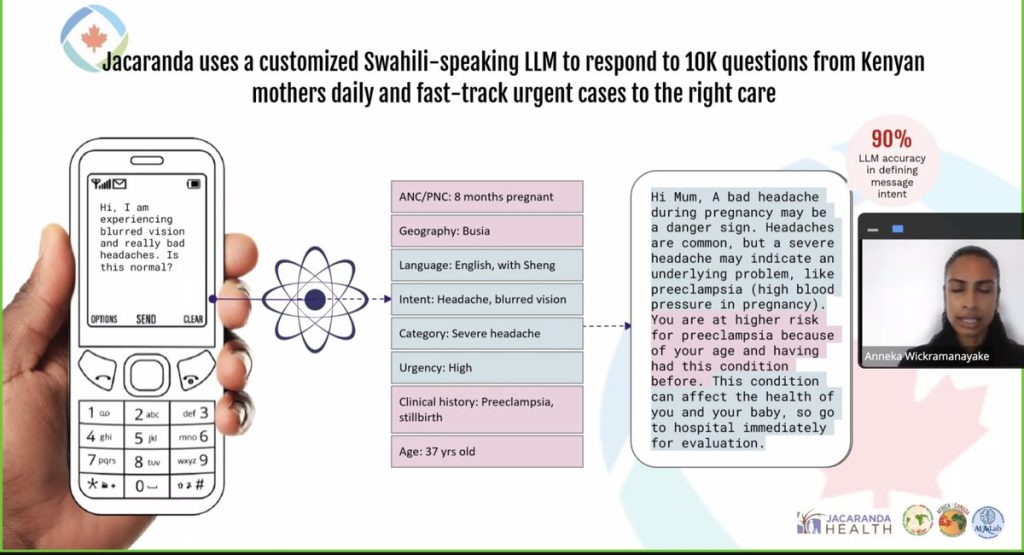
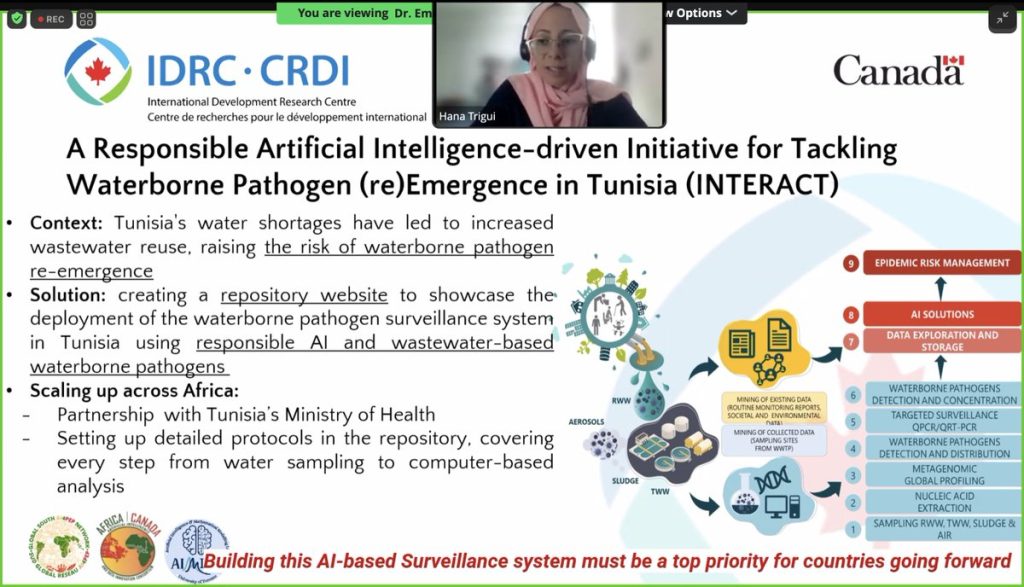
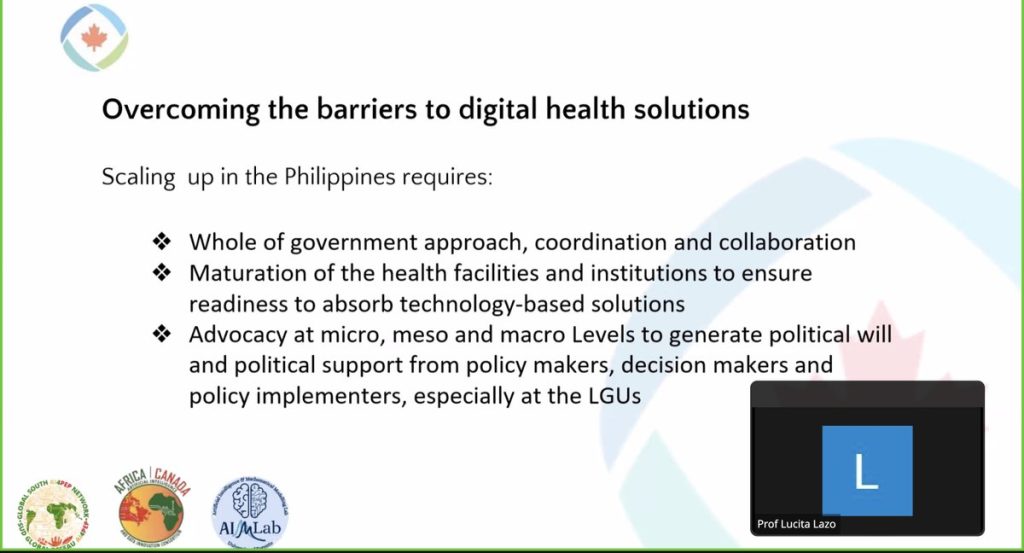
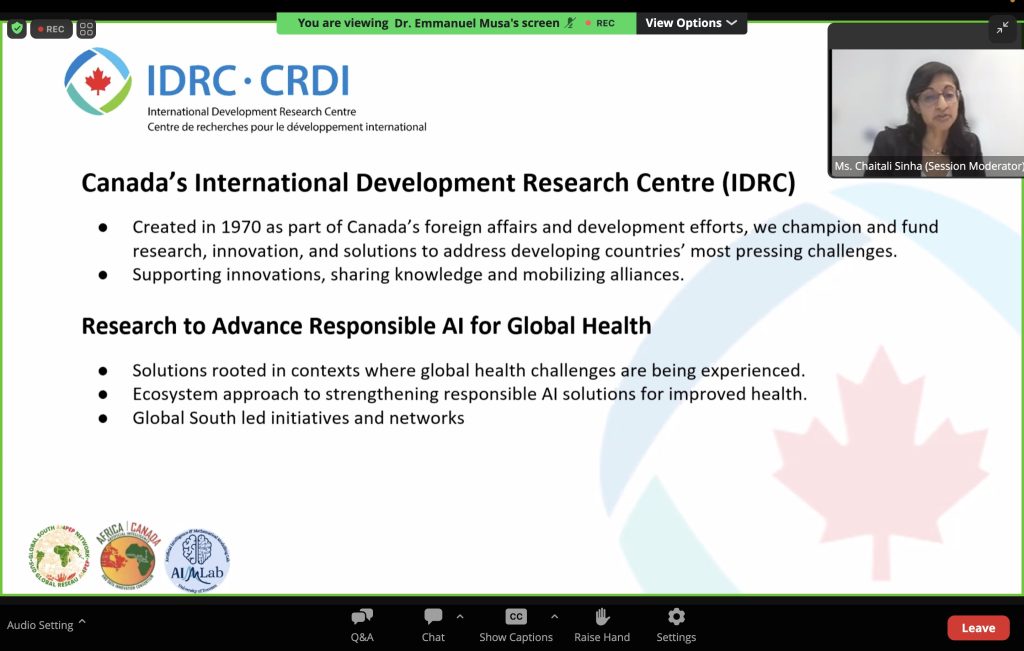
On September 12th, 2024, AI4PEP hosted a pivotal panel discussion as part of the UNGA Science Summit. This event, titled « Responsible Artificial Intelligence Solutions from the Global South: Accessible, Better Health and Stronger Health Systems » brought together experts from across the globe to explore the transformative role of AI in healthcare. The event featured two major panel sessions, which highlighted the transformative potential of AI in healthcare in the Global South, focusing on both practical applications and ethical governance.
Panel 1: AI Solutions: Transforming Healthcare in the Global South, Challenges and Opportunities
This panel examined how AI is being leveraged to address healthcare challenges in countries like South Africa, Peru, and the Philippines. The panelists shared real-world examples, discussing how AI applications have improved healthcare delivery, from diagnostic tools to AI-driven healthcare systems that enhance access and outcomes for underserved populations. The challenges addressed included infrastructure limitations, data governance, and equitable access to AI innovations, highlighting the need for tailored solutions specific to each region’s context.
The discussion emphasized interdisciplinary collaboration and the importance of building partnerships to scale AI responsibly.
Panel 2: AI for Health at Scale: Governance, Ethics, and Community Impact in the Global South
The second panel focused on the broader implications of scaling AI across healthcare systems, addressing ethical concerns, governance, and community involvement. The speakers highlighted strategies for ensuring that AI solutions are inclusive, accountable, and centered around community needs, advocating for equitable access to AI technologies.
It was addressed during this discussion that despite various challenges, AI presents significant opportunities for healthcare improvement if the workforce is developed effectively. AI can assist healthcare workers in decision-making, especially in areas lacking specialists, enabling them to perform more advanced procedures. It also enhances public health monitoring with real-time data analytics, improving disease surveillance and outcomes in regions prone to epidemics.
Several AI applications in healthcare projects were discussed at this session. One of such projects is the AI4PEP project in Tunisia which shared how the country’s water shortages have led to increased wastewater reuse which is raising the risk of waterborne pathogen re-emergence. The researchers are creating a repository website to showcase the deployment of waterborne pathogen surveillance system. Looking ahead, the team is partnering with Tunisia’s Ministry of Health to create detailed protocols in the repository, accounting for every step-from water sampling to computer-based analyses. This will allow the team to tackle waterborne pathogen (re)Emergence drawing on a Responsible AI solution.
These two panels collectively offered rich insights into how AI can be responsibly scaled to improve health outcomes, particularly in regions that face unique healthcare challenges, and provided a roadmap for future discussions on AI governance, ethics, and impact in the Global South.
